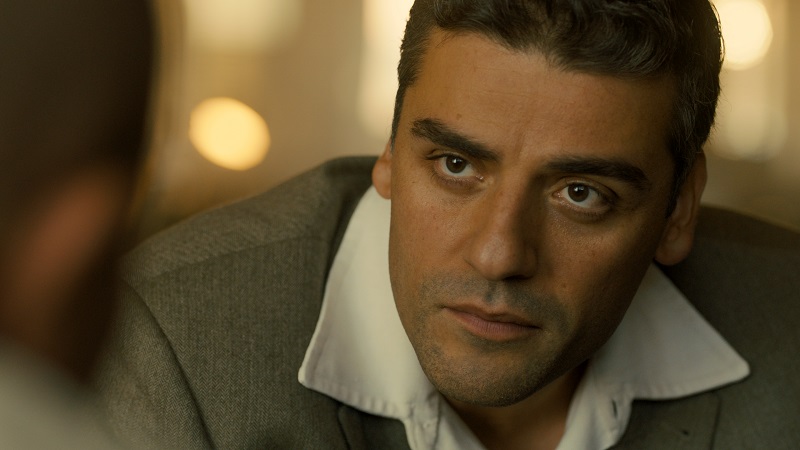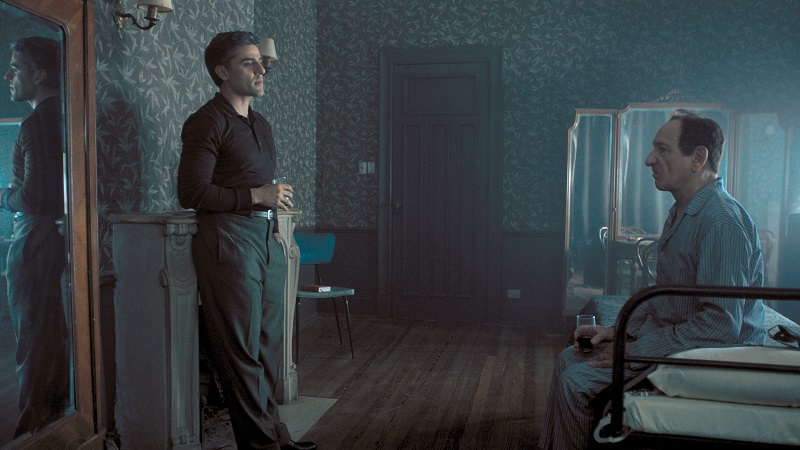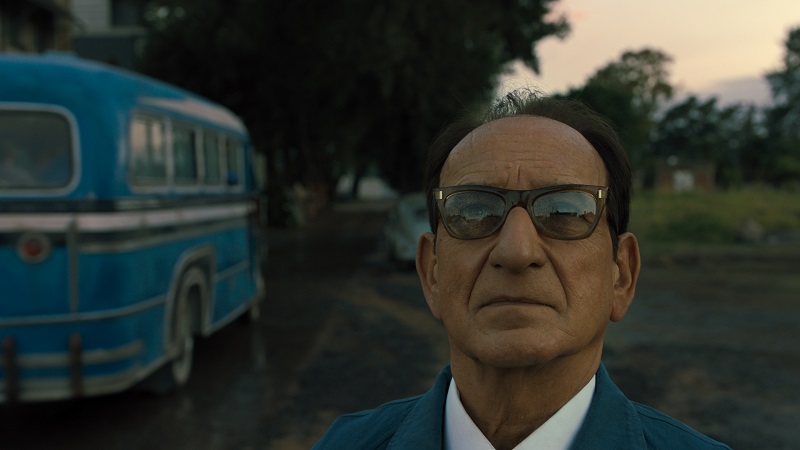The capturing of the Nazi architect of Germany’s “Final Solution,” Adolph Eichmann, by Israeli forces should be a riveting, catch-your-breath cinematic journey. Largely, it is… but Operation Finale achieves that in the most unexpected of ways.
What director Chris Weitz delivers—from Matthew Orton’s screenplay—is deliberate in every way.
Those who head into theaters expecting an epic, jaw-dropping and thrilling tale of Mossad’s (Israeli Secret Service) greatest clandestine mission in the young country’s history will be disappointed. Instead, Operation Finale is truly a character study of the highest order that rings true through every frame.
As the ferocity of the European theater of World War II began to fade, the Jewish people were denied any sort of redemption from the top brass of Germany’s military machine. Adolf Hitler and several of his subordinates committed suicide. There were many that were brought to trial in Nuremberg and history has shown they paid the price for their crimes against humanity.
One, Eichmann, slipped through an international dragnet and vanished. He was the highest-ranking German official with the potential to provide the Jewish people some justice and closure. Mossad made it the utmost of priorities to find him, capture him and bring him to Israel to stand trial. It would, potentially, be the first time in the Jewish people’s history that they were able to bring justice to those who oppressed them.
Oscar Isaac (Star Wars: The Last Jedi) rivets as Peter Malkin, the man largely credited with capturing the notorious Nazi. His journey to Mossad agent would commence as a young man who witnessed Nazis murdering his beloved sister. Malkin’s search for Nazi war criminals had him traveling the world to varied success. If the intelligence that Eichmann was alive and well and living in Buenos Aires, Argentina was true, closure for the Malkin, Israel and the Jewish people of the world could be close at hand.
Believe it or not, knowing geographically where Eichmann was spending his days was the simplest of spokes in the complex wheel of extolling justice. Capturing him quietly, holding him in a safe house until it was safe to transport the war criminal through the streets of the Nazi friendly country and then somehow managing to take off in an airplane with approval from Argentine aviation officials to Jerusalem to stand trial—now that, that is the most supreme of challenges.
Sir Ben Kingsley portrays Eichmann and does so in the most extraordinary of ways. There are layers to his characterization that befit the wickedly savvy German who orchestrated the genocide of six million Jewish souls. He is simultaneously a family man and an individual who will do absolutely anything to avoid what is certain death at the hands of the people he sought to eradicate from the planet. All the while, we keenly know—from history and how filmmakers have laid out the character itself—he is as evil as they come. But through Kingsley’s performance, one gets lost in the possibilities that all is not what it seems with the individual who sits in Mossad’s possession in an Argentine safe house.
What should have been a short stay in said safe house winds up being almost two weeks. As such, tension boils—but only from an emotive sense. It is only through the events of the latter third act that the viewer gets the thrill factor punched up.
It is there, in that safe house, that the ensemble shines. It feels more like a stage play than a movie and that is a beautiful thing, especially with a cast of thespians who dig deep into their actors’ tool kit.
To the surprise of no one who has seen their collective work, fireworks fly when Kingsley and Isaac work their movie magic.
There is a burgeoning relationship between Eichmann and Malkin that is the key to the success of the entire mission. Each has an agenda. The Nazi knows that boarding that plane signs his death warrant. Yet, at the same time, he knows it also provides him a forum in front of the world to lay out his case for why he did what he did. Don’t underestimate the power of that sentiment from Eichmann as it defines his entire existence at this point in his soon-to-be-over life. Witnessing both thespians encapsulate
Not to be outdone by the Oscar winning Kingsley, Isaac (who undoubtedly will get his own Academy Award at some point in his career) delivers a stunningly sedate turn as the man who would just as soon kill Eichmann as deliver him to Israel. Although a trial would deliver the long-needed justice for a nation and a global populous in dire need of it, Malkin keenly knows that it too would give the evilest of men a soapbox for spouting his brand of hate.
Operation Finale is a more intricate story than one would expect, given the subject of a country’s secret service tracking down a war criminal and bringing him to trial without anyone getting killed in the process. An enormous amount of credit should be placed on Orton’s shoulders. The way he weaves this web with rich, multi-dimensional souls—who are swimming through the most complex of human history—is sublime.
Weitz, on the other hand, does a solid job, yet allows the film on rare occasions to mentally wander. Even if this tale isn’t a true thriller by definition, the command of the audience’s collective attention seems to have been taken for granted on just a few occasions. There are a couple of unnecessary moments that detract—ever slightly—from the emotional thrill-ride that permeates Operation Finale. Thanks to the actors who comprise this electric ensemble, our minds never wander for long.
The stand-out supporting players are led by Inglourious Basterds star Mélanie Laurent (as Hanna Elian). She is a former (and possibly future) love interest of Malkin. Her character is a doctor and some brilliantly laid-out backstory, it is revealed that something in her past has haunted Elian and makes her utterly uneasy with even considering joining this team that is heading to Argentina. As she achieved with Quentin Tarantino, the actress delivers a righteous turn that provides some ethical conscience for the picture.
Operation Finale chronicles the most significant of subjects. Therefore, Weitz’s film should be a must-see for audiences of all ages. That is due to the fact that the further away we get from the atrocities of World War II, the more integral it is to return to that era and spotlight the maniacal madness that was the Nazi political and war machine.
The film finds Eichmann embodying the entire Third Reich, while Malkin encapsulates those who firmly stand on the right side of history… and essentially humankind. Operation Finale serves as a timely microcosm that is the scope that is evil and righteousness. No matter how many times in human history those two elements battle, it is a war that never seems to end. With more films like Operation Finale, there is hope that someday we may learn from history instead of being destined to repeat it.
Grade: B




